|
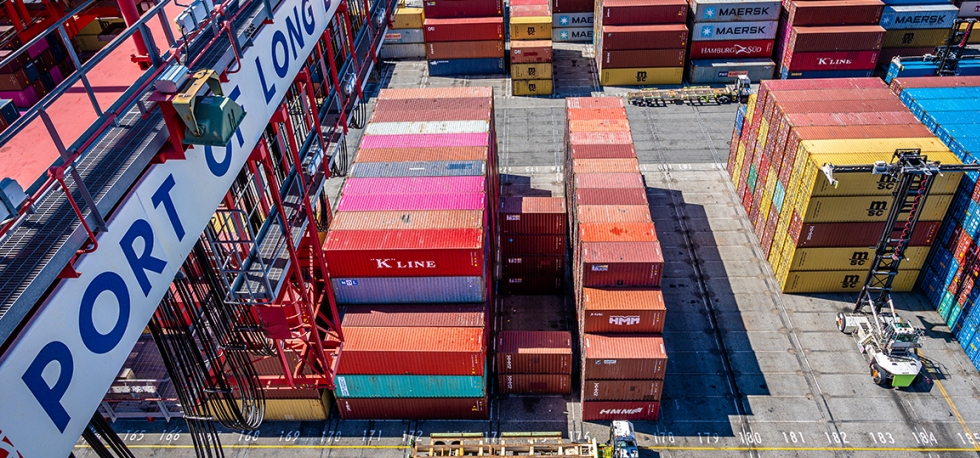
Port of Long Beach Says July was Biggest Month Ever
Aug. 19, 2020 - July marked the busiest month in the 109-year history of the Port of Long Beach as terminal operators and dockworkers moved 753,081 cargo container units, topping a record set two years ago.
Trade increased 21.1% in July compared to the same month in 2019. The previous single-month record of 752,188 twenty-foot-equivalent units (TEUs), set in June 2018, was surpassed by nearly 900 TEUs.
“Supply chain workers at the Port of Long Beach expertly handled a welcome surge in cargo that was brought on due to pent-up demand by consumers,” said Mario Cordero, Executive Director of the Port of Long Beach. “It was a good month, a bright spot, in the midst of the devastating effects of the coronavirus on the economy.”
“July’s performance reflects our excellent customer service and mission to move cargo efficiently, even during an unprecedented pandemic and the ongoing trade war with China,” said Long Beach Harbor Commission President Frank Colonna. “We will continue to work with our partners to ensure the secure and speedy shipment of goods.”
Cargo volumes were bolstered in July by a surge in online spending as consumers continued to avoid leaving home during the COVID-19 pandemic. Additionally, the Port saw a short-term increase in extra vessel visits to compensate for voyages that were canceled earlier this year.
Imports climbed 20.3% to 376,807 TEUs, while exports grew 24.1% to 138,602 TEUs. Empty containers headed back overseas increased 20.8% to 237,672 TEUs.
The Port has moved 4,186,115 TEUs during the first seven months of 2020, 2.8% down from the same period in 2019.
SOURCE: Port of Long Beach |
|
|
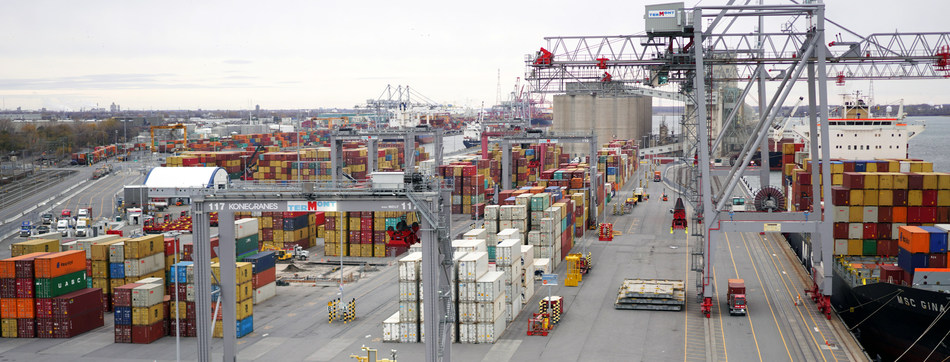
Mining and Forestry Groups Call on Government to Take Action to End Strike at Port of Montreal
Aug. 14, 2020 - Today, resource industry groups have united to demand the federal government intervene in the ongoing Port of Montreal strike. After a protracted rail strike in November, rail blockades in February, and the ongoing and significant supply chain disruption due to the COVID-19 pandemic, the Port of Montreal strike is exacerbating an already stressful situation by bringing the shipping of essential items like minerals, metals, forest products and fuel to a standstill in the region.
"Mining is a leading customer at the Port of Montreal, moving large volumes of iron ore, nickel, gypsum and recycled metal to smelters and refineries in the region. On the backdrop of massive supply chain disruption, and unprecedented reputational damage to Canada as a reliable international trading partner, this strike and the lack of effective action to resolve it demonstrates an incomprehensible inability to prioritize Canada's economic recovery in one of our country's greatest times of need," said Pierre Gratton, President and CEO of the Mining Association of Canada (MAC). "If the government wants to attract advanced manufacturing investment for battery and electric vehicle manufacturing needed to support the transition to a lower carbon economy, a reliable and efficient logistics supply chain is essential."
A marine transportation stoppage at Canada's largest eastern port significantly impacts the ability to bring essential inputs to companies that rely on them, and the capacity to move products and by-products to down-stream customers. To quell mounting damage to the fragile regional and national economy, and further harm to the country's reputation as a reliable trading partner, industry groups are urging the government to take any and all action necessary to address this work stoppage.
"The Port of Montreal is absolutely critical infrastructure to Canada's forest products sector. We export hundreds of products globally and receive shipments from abroad every single day," confirmed Derek Nighbor, President and CEO of the Forest Products Association of Canada (FPAC). "We estimate that this disruption has already imposed nearly $1 million US dollars in additional costs and lost sales for our sector in Ontario and Quebec– and this is at a time when we are facing high lumber demand and a struggling pulp and paper sector because of COVID-19. This disruption is challenging our ability to deliver to our customers and keep our people working. We need the federal government to deploy every resource to bring this dispute to resolution."
About MAC
The Mining Association of Canada is the national organization for the Canadian mining industry. Its members account for most of Canada's production of base and precious metals, uranium, diamonds, metallurgical coal, mined oil sands and industrial minerals and are actively engaged in mineral exploration, mining, smelting, refining and semi-fabrication. Please visit www.mining.ca.
About FPAC
FPAC provides a voice for Canada's wood, pulp, and paper producers nationally and internationally in government, trade, and environmental affairs. The $73.6-billion-a-year forest products industry represents 12 per cent of Canada's manufacturing GDP and is one of Canada's largest employers operating in over 600 communities, providing 230,000 direct jobs, and over 600,000 indirect jobs across the country.
SOURCE Mining Association of Canada (MAC) |
|
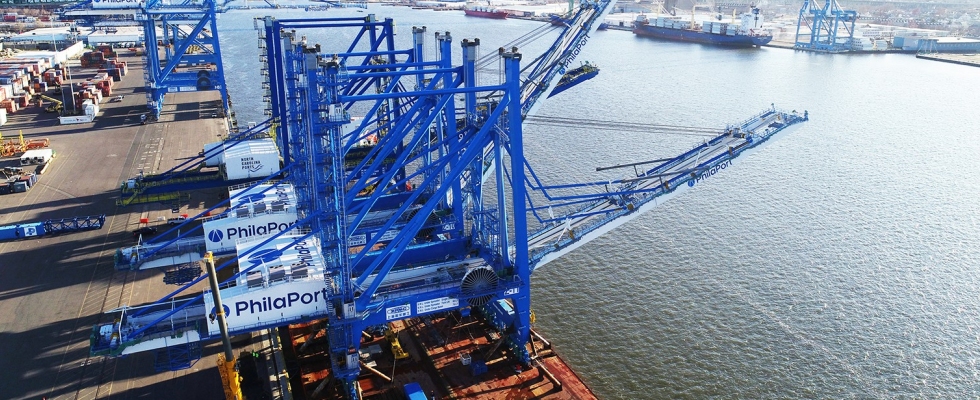
Pennsylvania Governor Wolf Extends Intermodal Cargo Growth Incentive Program for Ocean Carriers
Aug. 3, 2020 - Pennsylvania Governor Tom Wolf announced on July 21 that Pennsylvania’s Intermodal Cargo Growth Incentive Program (PICGIP), which aims to increase cargo activity by incentivizing shippers to move cargo through Pennsylvania ports, will be extended through 2022. The program was previously slated to end in June 2020.
“Right now, Pennsylvania’s ports are more vital than ever,” Governor Wolf said. “Increasing shipping activity will help ensure that essential goods are delivered to stores in a timely manner, while strengthening the supply chain well into the future.”
Originally established in 2015 through PennDOT’s Multimodal Fund, the PICGIP makes up to $1 million available annually to participating ocean carriers that move cargo through Pennsylvania’s ports. The fund helps secure fulltime employment at the terminals and increase economic activity through indirect and induced jobs.
All carriers who have not been to the Port of Philadelphia in the past six months must fill out an application on PennDOT’s website, while existing participants are required to complete the data verification form to be eligible for the program.
“The Intermodal Cargo Growth Incentive Program is essential for us to compete with other ports in attracting new ocean carriers and new trade lanes to Pennsylvania. This program supports the ocean carrier during the difficult initial phase of entering a port for the first time, or starting a new service,” said PhilaPort CEO and Executive Director Jeff Theobald. “Once the carrier is up and running, and we have the business, the incentive ends. This is a well designed program, and PennDOT has done a great job assisting us with implementing it.”
New carriers enrolled in the program receive $25 per new container unit loaded or discharged from vessels to a Pennsylvania port. Existing participants qualify for the incentive payment by exceeding established benchmarks.
In the past five years, over 1.8 million units of cargo passed through Pennsylvania ports with 175,000 units exceeding benchmarks resulting in $4.1 million in incentive funds awarded to 10 grantees.
Carriers already participating in the program should have received grant information directly from the program managers. For more information and to view PennDOT’s Intermodal Cargo Growth Incentive Program application/ guidelines visit PennDOT.gov, and click on the “Rail Freight and Ports” page.
SOURCE: Pennsylvania Governor Tom Wolf |
|
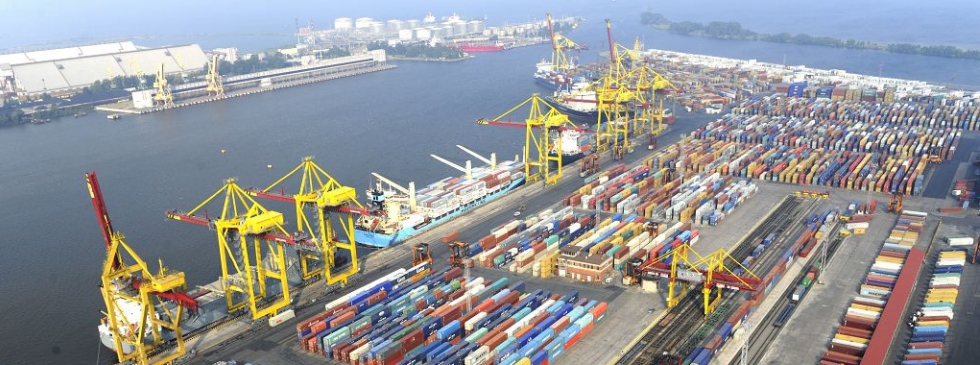
APM Terminals first to launch fully digital export management system in Russia
Aug. 4, 2020 - Following successful testing at the Turukhtanny customs post in June this year, First Container Terminal (FCT), will become the first Russian terminal to transfer to a fully paperless export management system for containers.
The proprietary technology enables the digital exchange of legally binding documents with the customs authority and is based on Global Ports’ customer portal and Sea Port’s Portal software functionality1.
Global Ports is a joint venture that combines the global expertise of APM Terminals (30.75%) with the local knowledge of Delo (30.75%), one of the largest private transportation and logistics holding companies in Russia.
The new digital export management system allows forwarding companies to upload orders and customs will issue documentation digitally. This enables the terminal to commence the loading of a container onto a vessel immediately without additional approval.
Faster exports
The forwarding company, customs authority, terminal and the shipping line all have online access to information about the status of the container at all stages of the process. This significantly decreases the time required to handle a shipment of export containers and will greatly simplify the interaction between the process participants.
“Global Ports is working hard to make its service as convenient as possible for customers and partners. Shipment orders remained the last “paper” element in export shipments. Due to our efficient interaction with customs, we have now made this document digital as well. Now, an export shipment may be ordered and traced on our customer portal. The technology we use guarantees data protection and integrity of data after it is entered into the electronic document flow system,” noted Alexey Yermolin, Director of Information Technology at Global Ports.
Zero VAT rate supported
During 2020, the service will be rolled out across all Global Ports terminals in Russia. The technology will also be developed to include shipping lines’ functionality into the system, which will allow the digital preparation of documents that foreign economic activity players require to confirm the zero VAT rate application2.
Global Ports is the leader in digitalisation among all of Russian ports – as a result of the continued development by the Group’s IT Services, paper document flow at the Group's terminals has reduced by 2.5x in the last six years.
Notes:
1 Developed by the FCS and intended for issuance of documents for vehicles and goods carried by vessels across the customs border of the Customs Union, on the basis of the electronic document exchange system.
2 Sale of goods exported under the export customs regime is subject to VAT at a zero percent tax rate provided that the exporter submits to the tax authority the documents set forth in Article 165 of the Tax Code of the Russian Federation.
SOURCE: APM Terminals
|
|
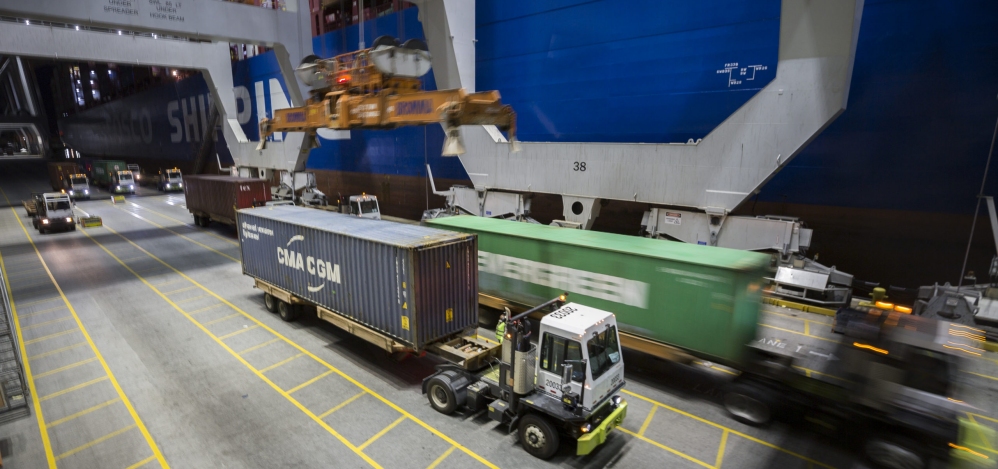
Georgia Ports Authority Sets Tonnage Record for FY2020
July 27, 2020 – The Port of Savannah handled 4.44 million twenty-foot equivalent container units in Fiscal Year 2020, down less than 1 percent compared to the previous year. Despite COVID-19 disruptions, total tons crossing all GPA docks reached a record 37.77 million, up 0.6 percent, or 223,000 tons, compared to FY2019. Container tons grew 2 percent (560,440 tons) to reach 33.5 million tons for the year, another record.
“Cargo volume reductions related to COVID-19 were offset by the strength of our export markets and record volumes earlier in the year,” said Griff Lynch, GPA’s executive director. “This year’s better than expected performance is the result of excellent teamwork starting at the top with Governor Kemp and our board of directors who have been champions of our ports, to our GPA team members along with the International Longshoremen’s Association, the shipping lines, stevedores, trucking and rail — you have never given in or given up throughout the crisis. Thank you for your commitment and perseverance.”
Even during challenging times, port activity coupled with ongoing expansion projects such as the harbor deepening and Mason Mega Rail have quickened the pace of commercial infrastructure investment. According to the latest report from Colliers International, 5 million square feet of industrial space are currently under construction in the Savannah market. In addition, Savannah is home to a total of 74.4 million square feet of warehouse and manufacturing space.
“What sets Savannah apart from the competition is the sheer capacity of the port’s ever-expanding footprint, on and off the terminal,” said Will McKnight, GPA’s board chairman. “Not only are we focused on the future and providing even greater value to our customers, but we have nearly unlimited potential and capacity to grow our business.”
The Port of Savannah’s status at the third-largest container gateway in the country, the nation’s top exporter of containerized agricultural goods and the fastest growing port over a 10-year period, continues to be a strong draw for economic development. Just recently, Port City Logistics announced an $80 million, 1.1 million square-foot development in the Savannah market as two major resin exporters were building out a total of 2 million square feet of new space.
In Northwest Georgia, the Appalachian Regional Port (ARP) handled more than three and a half times the cargo it did the year before, moving 27,132 containers, up 19,610 boxes. “As more customers learn the value the ARP brings to their operations, the facility continues to gain traction and build momentum,” Lynch said. “The inland port is a real success story for GPA, and we forecast business there to continue growing.”
At the GPA board meeting Monday, Lynch reported the first nine of 18 Mason Mega Rail tracks are now moving cargo at the Port of Savannah, two new mobile harbor cranes have been added to Savannah’s Ocean Terminal and a new container yard will be completed at Ocean Terminal by year’s end. Twenty new rubber-tired gantry cranes are slated to arrive at Savannah terminals by December, three new rail-mounted gantry cranes are scheduled to go into service by the end of FY2021, and construction will start soon on the upcoming straightening of Berth 1 at Garden City Terminal to handle more 15,000-TEU vessels. GPA is also upgrading Berth 2 at Colonel’s Island in Brunswick for dedicated Roll-on/Roll-off service.
Lynch said adding new container yard space, doubling rail capacity to 2 million TEUs per year, and growing the fleet of yard and vessel cranes are all parts of GPA’s plan to increase annual capacity from 6 to 11 million TEUs. “We’re confident in the long-term strength of the U.S. economy and our ability to help port users reach their customers more effectively,” Lynch said. “We’re building now to be ready to take advantage of new opportunities.”
Georgia’s deepwater ports and inland barge terminals support more than 439,000 jobs throughout the state annually and contribute $25 billion in income, $106 billion in revenue and $2.9 billion in state and local taxes to Georgia’s economy. The Port of Savannah handled 8.5 percent of U.S. containerized cargo volume and 10 percent of all U.S. containerized exports in FY2017. |
|
|